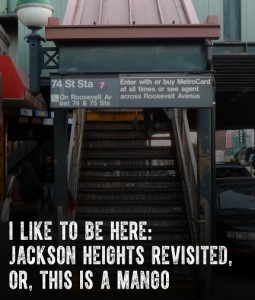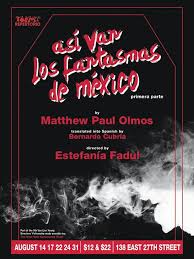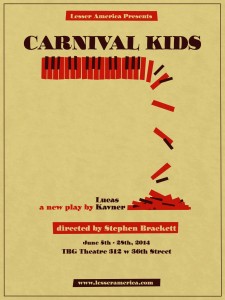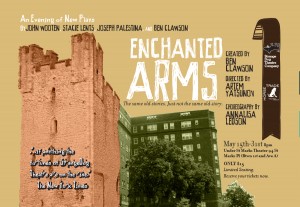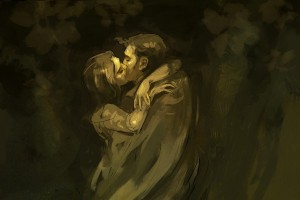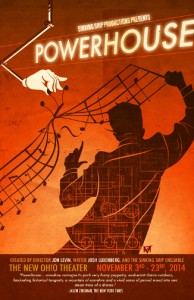 Chances are, you’re like me—you won’t immediately recognize the name Raymond Scott, but once you realize who he was, you also realize you’ve had his music stuck in your head at some point in time. Maybe even many points in time.
Chances are, you’re like me—you won’t immediately recognize the name Raymond Scott, but once you realize who he was, you also realize you’ve had his music stuck in your head at some point in time. Maybe even many points in time.
Director Jon Levin was once on the same page as you & I, casually humming Scott’s iconic melody from Powerhouse, when a friend introduced him to the story of this music pioneer. From there, he and playwright Josh Luxenberg, along with their collaborators in Sinking Ship Ensemble, began to devise this vibrant, imaginative piece of theatre, named for that very composition.
Listen in as Jon & Josh, joined by actors Erik Lochtefeld, who portrays Scott, & Eric Wright, one of the puppet-geniuses behind Puppet Kitchen (who provide, you might have surmised, puppets for the show), discuss faith in the post-atomic future, the difference between what you set out to do and what actually happens, and discovering your play in front of an audience.
“There’s something really compelling to me about the idea of something trying to do one thing, very specifically, and being undermined by a bunch of cartoons.”
Podcast: Play in new window | Download
Subscribe: RSS



